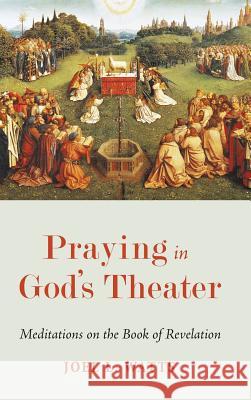Praying in God's Theater » książka
Praying in God's Theater
ISBN-13: 9781498268073 / Angielski / Twarda / 2014 / 238 str.
Praying in God's Theater
ISBN-13: 9781498268073 / Angielski / Twarda / 2014 / 238 str.
(netto: 161,48 VAT: 5%)
Najniższa cena z 30 dni: 167,24
ok. 16-18 dni roboczych.
Darmowa dostawa!
Description: Much like the book of Revelation, Joel L. Watts' Praying in God's Theater aims to pull readers into a deeper spirituality to confront the daily struggles of Christian life. Drawing from the rich well of Christian mystics and theologians from across the ecumenical experience, Watts uses the Apocalypse to build a series of prayers and devotions aimed at increasing what he identifies as the contemplative unity and the certain unity between the individual and Christ. He urges a radical vision of the prayer and the sacrament of the Eucharist. Each chapter of Revelation is considered, explored, and finally used as a basis to draft prayers. Added to this is an application commentary that explores ancient liturgical practices similar to the scenes in Revelation while looking at Revelation in a mystical manner. Watts offers Revelation as an early liturgy, using this proposition as a catalyst for building prayers and a vision of life based on the Eucharist as the emblem of how we are to approach God. What emerges is a profound view on how we envision Scripture, prayer, and the book of Revelation.
Description:Much like the book of Revelation, Joel L. Watts Praying in Gods Theater aims to pull readers into a deeper spirituality to confront the daily struggles of Christian life. Drawing from the rich well of Christian mystics and theologians from across the ecumenical experience, Watts uses the Apocalypse to build a series of prayers and devotions aimed at increasing what he identifies as the contemplative unity and the certain unity between the individual and Christ. He urges a radical vision of the prayer and the sacrament of the Eucharist.Each chapter of Revelation is considered, explored, and finally used as a basis to draft prayers. Added to this is an application commentary that explores ancient liturgical practices similar to the scenes in Revelation while looking at Revelation in a mystical manner. Watts offers Revelation as an early liturgy, using this proposition as a catalyst for building prayers and a vision of life based on the Eucharist as the emblem of how we are to approach God. What emerges is a profound view on how we envision Scripture, prayer, and the book of Revelation.











